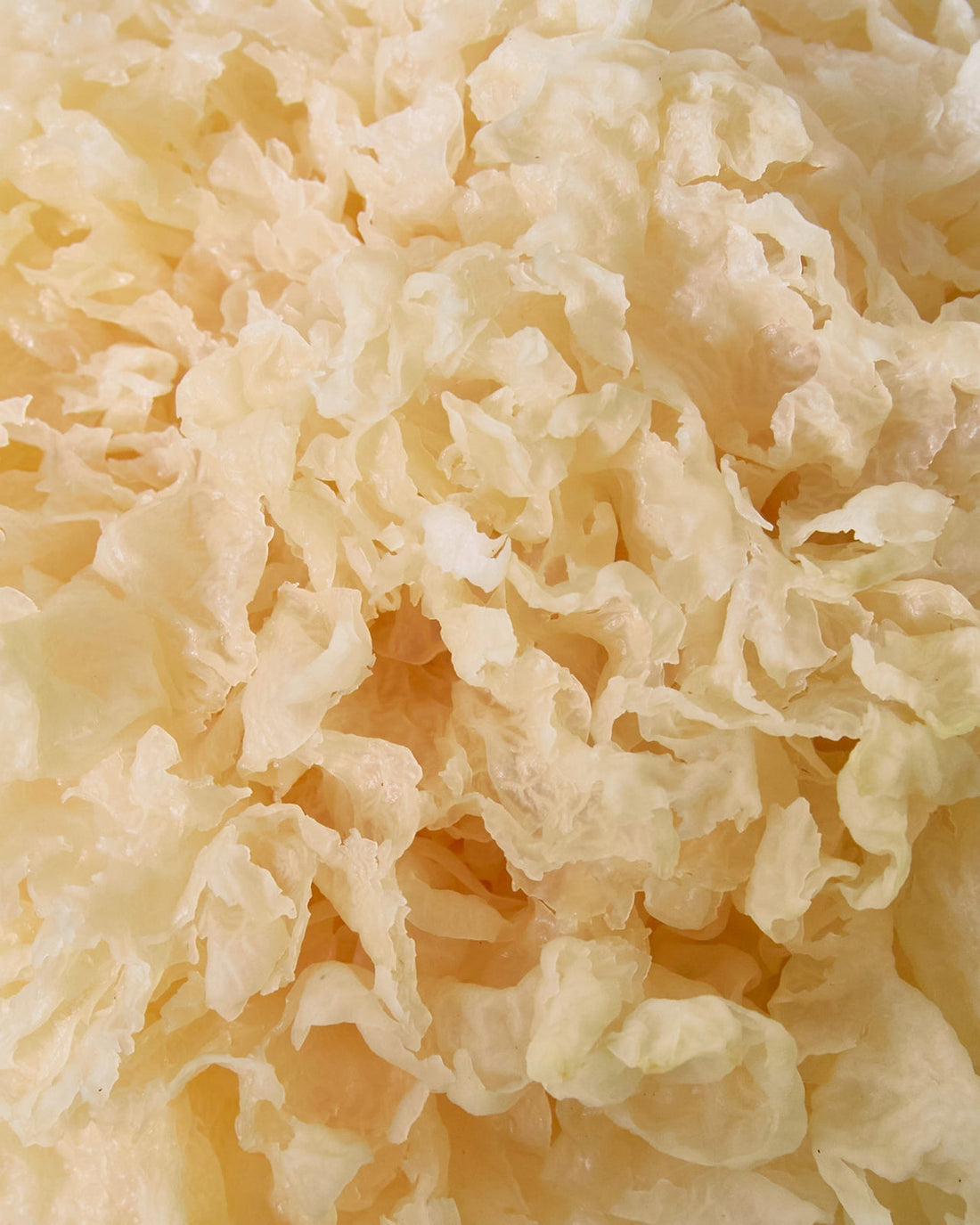
The Magic of Snow Mushroom for Your Skin
Share
Why Snow Mushroom Deserves a Spot in Every Skincare Routine
Have you ever felt frustrated by skincare products that promise everything but leave you disappointed? You might already know about ingredients like hyaluronic acid, but today I want to introduce you to something you might not have heard of yet: snow mushroom. It’s becoming more popular in skincare circles because it's incredibly effective at boosting hydration, improving elasticity, and helping reduce fine lines and wrinkles. That's why we chose it as a key ingredient in our product Quench. Let’s dive in a bit deeper so you can see why snow mushroom deserves your attention.
Snow mushroom (also known as Tremella fuciformis) is a jelly-like fungus that's been a part of traditional Chinese medicine for hundreds of years. It naturally grows in cooler climates across China, Japan, and even parts of North America. What makes this mushroom great for your skin is its unique ability to hold water—it can retain hundreds of times its weight in moisture. That's why it's excellent at hydrating your skin and giving it that plump, healthy look we all want.
But snow mushroom isn't just about hydration. It’s packed with polysaccharides, long-chain sugars that help keep your skin hydrated by pulling moisture from the environment and locking it into your skin. It also offers antioxidant and anti-inflammatory benefits, making it great for protecting your skin from environmental damage and calming down irritation. With more than 18 different amino acids, it even supports skin repair, making it suitable for every skin type.
How Snow Mushroom Amplifies Niacinamide’s Brightening and Calming Power
To get even more out of snow mushroom, it's smart to pair it with other skin-friendly ingredients like niacinamide and mandelic acid. Niacinamide (vitamin B3) complements snow mushroom's soothing properties, helps strengthen your skin barrier, and can even fade hyperpigmentation. Together, they support collagen production, leading to firmer, smoother skin with fewer visible wrinkles.
The Perfect Pairing: Snow Mushroom’s Hydration + Mandelic Acid’s Clarity
Mandelic acid is another fantastic partner for snow mushroom. It's a gentle exfoliant derived from almonds, known for its ability to smooth skin texture and brighten your complexion without irritating sensitive skin. When combined with snow mushroom, mandelic acid boosts hydration even further, giving your skin a more even, refreshed look.
We included all of these ingredients—snow mushroom, niacinamide, and mandelic acid—in Quench to create a powerful formula that addresses hydration, skin texture, and signs of aging at once. If you're looking to simplify your skincare routine with ingredients that genuinely work, this combination is a smart place to start. It’s never too late to invest in healthier skin.
Quick recap: snow mushroom benefits
-
Deeply hydrates the skin without stickiness
-
Enhances elasticity and smoothness
-
Reduces fine lines and wrinkles
-
Calms inflammation and protects from environmental damage
-
Supports skin barrier repair and overall health
If you're ready to say "YES!" to a new level of radiance, start here.
